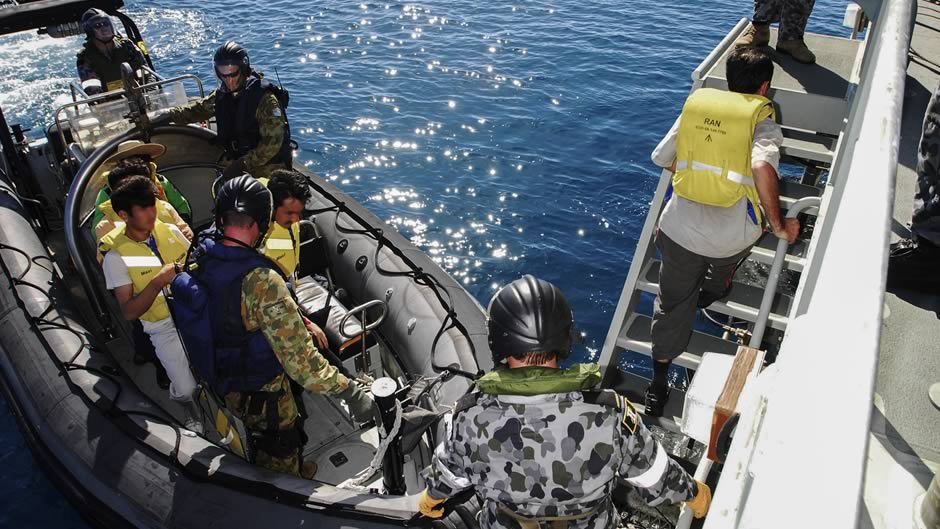Key Takeaways:
- Operation Sovereign Borders continues its stringent protocols regarding unauthorised maritime arrivals (UMAs).
- Recent statistics show minimal movement of UMAs, with only less than 5 arrivals being processed and 21 resettled in a third country during October 2024.
- The Government of Nauru is responsible for the protection claims processing of UMAs.
In the latest update on Operation Sovereign Borders (OSB) for October 2024, the Australian Government underscores its commitment to robust immigration controls, particularly concerning unauthorized maritime arrivals (UMAs). As the world grapples with escalating migration pressures, Australia maintains its stringent policies, evidenced by the remarkably low traffic of UMAs during this reporting period.
During October 2024, the operational statistics reveal a cautious yet effective model. Less than five UMAs were safely transferred to a regional processing country—a testament to Australia’s long-standing policies targeting maritime smuggling ventures. In contrast, 21 UMAs were successfully resettled in a third country, showcasing a strategic approach to managing those seeking refuge while maintaining strict controls on a direct intake.
What stands out from this report is the zero involuntary removals from Australia, suggesting a potential shift in the dynamics of humanitarian processing. While 14 UMAs opted for voluntary return from regional processing, the absence of involuntary removals underscores a focus on voluntary compliance and cooperative engagement with asylum seekers. It is a notable emphasis that may reflect broader humanitarian goals amid rigorous policy enforcement.
Interestingly, the processing of UMA protection claims remains firmly in the hands of the Government of Nauru. This delineation indicates a continual reliance on regional frameworks for managing asylum claims. It raises questions about the adequacy and speed of the processing systems in place, particularly for those who arrive seeking safety.
This operational update becomes particularly relevant against a backdrop of global migration crises, where Australia’s approach continues to stir debate. While some view these stringent measures as necessary for border security, others argue they may undermine the spirit of international humanitarian obligations. Balancing national interests with human rights commitments is a tightrope walk that governments, including Australia’s, must navigate cautiously.
As the landscape of global migration evolves, one thing seems certain: the conversation around immigration in Australia will remain complex and multifaceted. This latest OSB update reflects just a slice of the overarching narrative, as policymakers grapple with the challenges and implications of migration on both a domestic and international scale.










